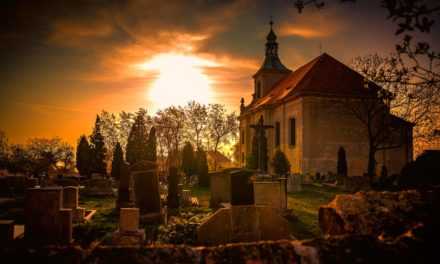Acts 7:54–60: The Heavens Opened
Introduction
As Stephen drew his testimony to a close, he brought very pointed accusations against the Sanhedrin. Whatever they may have thought about Stephen’s exposition of Old Testament history, there could be no doubt in their minds that Stephen represented a threat to their religion, position, power, and influence in his final statements. From this, the court transforms into an enraged mob that quickly carries out Stephen’s execution. Yet, throughout this ordeal, Stephen is not portrayed as frightened, but as captivated by the glory and the kingship of Christ, as he sees the Son of Man reigning from heaven. Although we are not promised to see in this life the same vision that Stephen saw, what Stephen saw is given for our instruction, to ensure us that Jesus’ reign as king transforms Christian suffering into victory.
Discussion Questions
1. How did the Sanhedrin react to Stephen’s speech (v. 54)? What does it mean that Stephen was “full of the Holy Spirit” (v. 55a)? What did Stephen see in heaven (v. 55b)? Why does Luke record the contents of the vision twice, once in the narrative, and once in Stephen’s own words (vv. 55–56)? What is the significance of the title “Son of Man” (see Dan. 7:13–14)? What is the significance of Jesus’ being positioned at his Father’s right hand?
2. How does the Sanhedrin’s rage and the stopping of their ears connect with Stephen’s accusation that they were “uncircumcised in heart and ears” (v. 57; see Acts 7:51)? Why do they “cast [Stephen] out of the city” (v. 58a)? How formal and legal were the proceedings to execute Stephen? What is the significance of the brief description we have of Saul here (v. 58b)? How will Saul carry forward the persecution in the church after this (see Acts 8:1–3)?
3. What is the significance that Stephen “called out” (v. 59a; see Acts 2:21)? How does Stephen’s prayer for the Lord to receive his spirit compare with Jesus’ prayer from the cross (Luke 23:46)? What is the significance of Stephen’s “falling to his knees” (v. 60a)? How does Stephen’s prayer for the forgiveness of his persecutors compare to Jesus’ prayers (Luke 23:34)? What is similar, and what is different, between the deaths of Jesus and Stephen?
4. Where has the church experienced persecution historically? Where do Christians suffer the fiercest persecution today (see the website for Voice of the Martyrs for more information)? How have the enemies of the church increased persecution against the church in the United States recently? How might persecution beget more persecution? How does Stephen’s vision strengthen our faith today as we prepare for the possibility of persecution?




